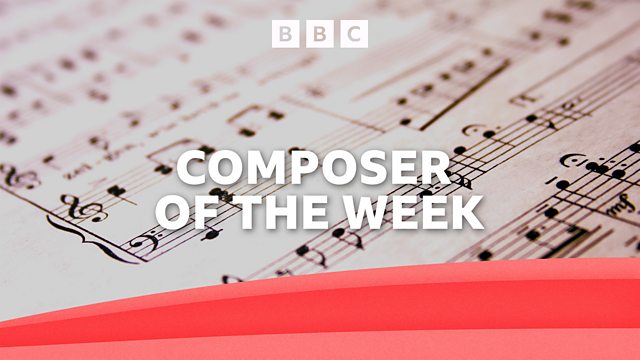
An Invitation
Donald Macleod looks at why Dvořák turned down, and then later agreed to, an extended trip to the USA.
Donald Macleod looks at why Dvořák turned down, and then later agreed to, an extended trip to the USA.
Antonín Dvořák became the first Czech composer to achieve global fame. His gift for transforming the folk styles of his native Bohemia into richly romantic classical music won him admirers far beyond his homeland. Consequently, Dvořák was approached to leave Europe and serve as director of the newly established National Conservatory of Music in America. His sponsors hoped he would help foster a new and distinctive American musical style, less reliant upon Germanic traditions. During his time in America, Dvořák composed many of his most celebrated works, including his Ninth Symphony and his Cello Concerto. This week, Donald Macleod focuses on Dvořák’s American years and uncovers what he achieved there.
Antonín Dvořák was employed at the Conservatory in Prague from 1890 and developed a reputation as a hard taskmaster. He taught only the most talented students and could be very strict and demanding. But outside of classes, he would take any opportunity he could to escape the confines of academia and fulfil his twin passions of trainspotting or bird feeding. When an offer arrived from Mrs Jeanette Meyer Thurber, the wife of a millionaire New York grocer, suggesting Dvořák might like to abandon Prague for New York and take up the post of director at the new National Conservatory of Music, he turned it down. So what changed his mind? Donald investigates.
Symphony No 9 in E minor, Op 95 “From the New World” (excerpt)
Baltimore Symphony Orchestra
Marin Alsop, conductor
Piano Trio No 4 in E minor, Op 90 “Dumky” (Lento maestoso)
Christian Tetzlaff, violin
Tanja Tetzlaff, cello
Lars Vogt, piano
Carnival Overture, Op 92
Royal Liverpool Philharmonic Orchestra
Libor Pešek, conductor
Requiem, Op 89 (Introitus)
Christiane Libor, soprano
Ewa Wolak, alto
Daniel Kirch, tenor
Janusz Monarcha, bass
Warsaw National Philharmonic Choir
Warsaw National Philharmonic Orchestra
Antoni Wit, conductor
Symphony No 4 in D minor, Op 13 (excerpt)
Royal Scottish National Orchestra
Neeme Järvi, condcutor
Silent Woods, Op 68 No 5
Alisa Weilerstein, cello
Anna Polonsky, piano
Produced by Luke Whitlock
Last on
More episodes
Previous
You are at the first episode
Music Played
-
![]()
Antonín Dvořák
Piano Trio No 4, Op 90 "Dumky" (1st mvt)
Performer: Christian Tetzlaff. Performer: Tanja Tetzlaff. Performer: Lars Vogt.- ONDINE : ODE 1316-2.
- ONDINE.
- 5.
-
![]()
Antonín Dvořák
Carnival Overture Op.92
Orchestra: Royal Liverpool Philharmonic Orchestra. Conductor: Libor Pešek.- Warner : 9029631731.
- Warner Classic.
-
![]()
Antonín Dvořák
Requiem, Op 89 (Introitus)
Singer: Christiane Libor. Singer: Ewa Wolak. Singer: Daniel Kirch. Singer: Janusz Monarcha. Choir: Warsaw Philharmonic Chorus. Orchestra: Warsaw Philharmonic Orchestra. Conductor: Antoni Wit.- NAXOS : 8.572874-75.
- NAXOS.
- 1.
-
![]()
Antonín Dvořák
Symphony No 4 in D minor, Op 13 (2nd & 3rd mvt)
Orchestra: Royal Scottish National Orchestra. Conductor: Neeme Järvi.- Chandos : CHAN-8608.
- CHANDOS.
- 2.
-
![]()
Antonín Dvořák
Silent Woods, Op 68 No 5
Performer: Alisa Weilerstein. Orchestra: Czech Philharmonic. Conductor: Jiří Bělohlávek.- DECCA : 478 5705.
- DECCA.
- 8.
Broadcast
- Mon 13 Jun 2022 12:00��ѿ��ý Radio 3
Beethoven Unleashed – the box set
What was really wrong with Beethoven?
Composers A to Z
Who knew? Five eye-opening stories from Composer of the Week
Five reasons why we love Parry's Jerusalem
What is the strange power of Jerusalem which makes strong men weep?
A man out of time – why Parry's music and ideas were at odds with his image...
The composer of Jerusalem was very far from the conservative figure his image suggests.
Composer Help Page
Find resources and contacts for composers from within the classical music industry.





